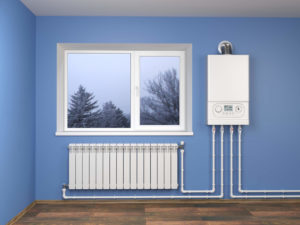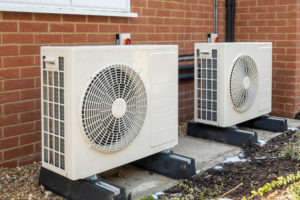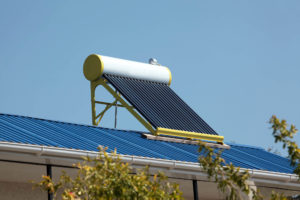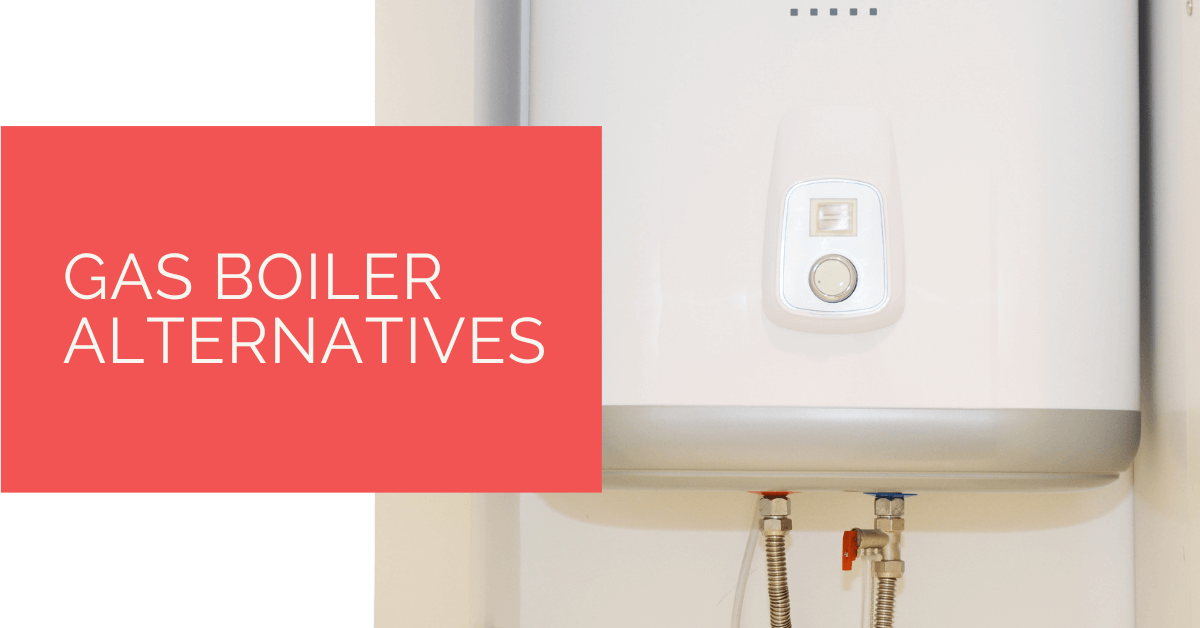Gas boilers have been widely used for residential heating, particularly in regions like the UK. They have traditionally served as a primary heating source for many households.
However, as the world increasingly prioritises sustainability and environmental considerations, the need for greener alternatives to traditional heating methods has become more evident. Concerns about ecological impact drive the shift away from conventional energy sources.
In recent years, various innovative alternatives to gas boilers have emerged, offering more environmentally friendly options for heating. This article introduces and explores greener alternatives, empowering individuals to make eco-conscious decisions in their heating systems.
This article will guide you regarding the top greener alternatives to gas boilers so you don’t have to rely on fossil fuels.
Contents
Key Takeaways
- Gas boilers, once a popular choice for heating in the UK, face challenges due to their environmental impact, inefficiency, and government bans.
- Green gas boiler alternatives, such as electric radiators, solar thermal panels, electric water heaters, infrared heating panels, ground source heat pumps, air source heat pumps, and biomass boilers, offer environmentally friendly options with energy-efficient benefits.
- The UK government is promoting these alternatives through subsidies, and they are becoming more cost-efficient in terms of installation and maintenance while helping reduce carbon emissions.
What Is a Gas Boiler?
Before getting into the details of the alternatives, let’s first understand what a traditional gas boiler is. This heating system has been a part of residential and commercial places for a long time. It helps provide sufficient heat to the properties and ensures a consistent hot water supply.
A gas boiler is like a giant furnace. You can control the boiler with your thermostat and make it function like a heater.
The device uses gas fuel to heat water and sends it to the radiators via pipes. It functions as a central heating system. The fuel used in a gas boiler is either natural gas or liquid petroleum gas.
How Does a Gas Boiler Function?
Various types of gas boilers are available in the market, but their function is more or less similar. These boilers heat the gas and keep your home warm!
There are two ways to connect the boiler to the fuel source:
- Either via a main
- Or an LPG container
Connecting the gas boiler to a separate water tank or your taps and showers can easily receive hot water.

Why Do You Need an Alternative to Your Old Gas Boiler?
The gas boilers work just fine when keeping your property warm and providing hot water. Then why do you need to look for alternatives?
Let’s have a look.
Running Costs of Less Efficient Gas Boilers
A major problem with gas boilers is that many homes may not be connected to the main gas grid network. Apart from its environmental impact, installation and upfront costs are too high for these boilers. There is also the hassle of annual maintenance.
These boilers also tend to be far less efficient when heating your home than their cleaner alternatives. This can be a burden not just on the planet but also on your pocket. There is also the risk of gas leaks.
Government Bans on Gas Boilers
The UK government is making rapid changes to reduce the environmental impact and reliance on fossil fuels. The government announced its target of reaching “net zero” greenhouse gas (like carbon dioxide) emissions by 2050.
This has banned new gas boiler installations after 2025. It also makes it challenging to find the parts for repairing the existing boilers in the country.
The government has also made it clear that by 2035, no house in the UK will be permitted to install fossil fuel boilers.
Benefits of Green Gas Boiler Alternatives
Navigating the challenges associated with traditional gas boilers—both in terms of installation and ongoing maintenance—highlights the importance of considering alternative heating solutions. The alternatives to gas boilers discussed herein are not only better for the environment but can also be more cost-effective over time.
The UK government has launched various incentives to support the transition to more sustainable heating options, moving beyond the initial Renewable Heat Incentive (RHI) schemes.
While the RHI schemes (introduced in 2012 for non-domestic and 2014 for domestic applications) were pivotal in encouraging the adoption of renewable heating technologies by offering payments to non-residential and residential properties, these schemes have since evolved. They stopped accepting new applications on 29th February 2016, but participants continue to benefit from payments for a set period.
Building on this foundation, the UK government has introduced the Boiler Upgrade Scheme (BUS) as the latest initiative to promote energy-efficient heating technologies. This scheme is specifically designed to facilitate the adoption of low-carbon heating systems, such as heat pumps and biomass boilers, in England and Wales. Notably, the BUS enhances the financial incentives for installing such systems:
- Air Source Heat Pump: Grant increased to £7,500 for installation and purchase costs.
- Ground Source Heat Pump: Also receives a £7,500 grant towards installation and purchase.
- Biomass Boiler: Eligible for a £5,000 reduction in installation and purchase costs.
This increase in grant funding, effective from 23 October 2023, signifies a robust commitment to overcoming the barriers to green heating technology adoption, making sustainable options more accessible and financially attractive to a broader range of consumers.
Furthermore, the Heat and Buildings Strategy underscores the government’s broader commitment to reducing reliance on fossil fuels, highlighting the strategic role of heat pumps and the potential for hydrogen heating in the future. This comprehensive approach aims to make green heating solutions more affordable and supports the UK’s net-zero emissions target by fostering a secure, domestically powered energy sector.
By embracing these initiatives, homeowners and small business owners in England and Wales are encouraged to contribute to the national goal of reducing carbon emissions while potentially enjoying lower energy costs and increased property values. The shift towards green heating technologies is supported by substantial investments in innovation and the development of the UK’s low-carbon heating industry, promising significant environmental and economic benefits for the nation.
For detailed information on eligibility and how to apply for the Boiler Upgrade Scheme, visit the official UK government website.

The Best Gas Boiler Alternative to Consider
Today, there are many alternatives to gas boilers. Some are more traditional, like an LPG or oil boiler, hydrogen boiler, etc.
However, plenty of low-carbon alternatives are also available that you can consider as a replacement for your old central heating system.
Electric Radiators
The modern electric radiators today come in sleek and stylish designs that not only make your home more energy-efficient but also highly aesthetic. These alternatives to traditional boilers and heaters even save you a ton of unnecessary energy bills and heat large rooms efficiently.
Moreover, they function without making noise, which was common in the previous generation of oil and gas boilers.
Solar Thermal Panels
Solar thermal panels function similarly to photovoltaic (PV) panels that can store energy from the sun and convert it into usable electricity. For this reason, the stored heat is much more reliable and evenly spread.
This is why these panels are primarily used for heating water in your water tank.
However, one major drawback of these panels in a country like the UK is the grey and cloudy weather. Although there might be sufficient solar power to run the panels, the available energy will vary all year round.

Electric Water Heaters
Electric water heaters are another excellent alternative for ensuring a hot water supply, especially in domestic properties. Unlike a boiler, this device can provide shower-ready hot water much quicker.
It functions via stratification, where these electric heaters can also reduce uneven heating. This ensures that you receive more hot water for the same cost.
Infrared Heating Panels
Infrared or IR heating panels are another great option to help you reduce your carbon footprint. This device is helpful for commercial and domestic purposes and works differently than conventional heating methods that warm the air.
The electromagnetic waves released from the IR heating panels can directly heat objects and even people. Due to no energy loss along the way, these can ensure complete energy efficiency. In addition, you can pair it up with a heat pump or solar panel for generating renewable energy.
Ground Source Heat Pumps
Ground source heat pumps are a low-cost and low-maintenance alternative to gas boilers. These pumps absorb heat from the ground. These are also known as geothermal pumps and gather the heat the earth absorbs from the sun.
Using these pumps in the UK can help you keep the underground temperature around 8-11°C, ensuring much greater energy efficiency. These are even more efficient than the air source heat pumps that draw heat from the air.
Air Source Heat Pumps
Air source heat pumps function similarly to their geothermal counterpart. However, instead of the ground, they can absorb the heat from the air and heat your home. These pumps can be of two types:
- Air-to-air
- Air-to-water
While the air-to-air heat pump heats the air in your ventilation system to keep the ambience warm, the air-to-water pump provides hot water.
Along with the air, these pumps may require a small amount of electricity. Nonetheless, these, too, offer a higher energy efficiency rate and can produce three to four times the energy they consume.
Biomass Boilers
A biomass boiler burns natural materials or biomass that comes from wood, plants, and other organisms. The boiler can directly burn the biomass to produce heat. Or, you can use fuel converted from the biomass to power the boiler.
Being carbon neutral, these boilers are environmentally friendly and help reduce your carbon footprint to a great extent. They also help lower your energy bills.
One of the major drawbacks of these boilers is that they are enormous and require significant installation space. In addition, they require higher maintenance. Even the upfront cost is higher for these devices, making them the least favourite on the list.
Heat Pump Source: Reliable Heating and Cooling Solutions
At Heat Pump Source, we take pride in our unwavering commitment to serving the UK with top-tier HVAC solutions. From the efficiency of heat pumps and the cool relief of air conditioning to the warmth of boilers, radiators, and underfloor heating, our dedicated team is always at the forefront of innovation. We understand the unique needs of every household and business, and we strive to provide dependable health and cooling products and services that are tailored just for you. Ensuring your comfort and satisfaction is our utmost priority. Whether you have questions, need guidance, or require support, we’re always here to assist. Please don’t hesitate to contact us; we’re eager to be of service.
Wrapping Up
There is no doubt that these gas boiler alternatives are the perfect replacement for keeping your properties warm while lowering carbon emissions. Moreover, these are highly energy efficient and come with cost-efficient installation and maintenance.
This can put the average person at ease regarding energy costs.
Regarding promoting renewable energy applications, the UK is taking the lead worldwide. It has already been able to install solar energy across the country, paving the way for potential advancements in carbon emissions reduction.
With the rising popularity of the greener gas boiler alternatives in the UK, upgrading your old boiler with much better options is now possible.
Therefore, save this list and pick your option the next time you require a new heating device.
About the Author
At Heat Pump Source, our articles are the product of a collaborative effort among a team of highly skilled HVAC experts. Our dedicated professionals, hailing from diverse backgrounds in heating, ventilation, air conditioning, and refrigeration, contribute their extensive knowledge and experience to every piece of content. This multidisciplinary approach ensures comprehensive coverage. Our commitment is to deliver authoritative, reliable, and tailored advice to meet the unique needs of every household and business across the UK.

